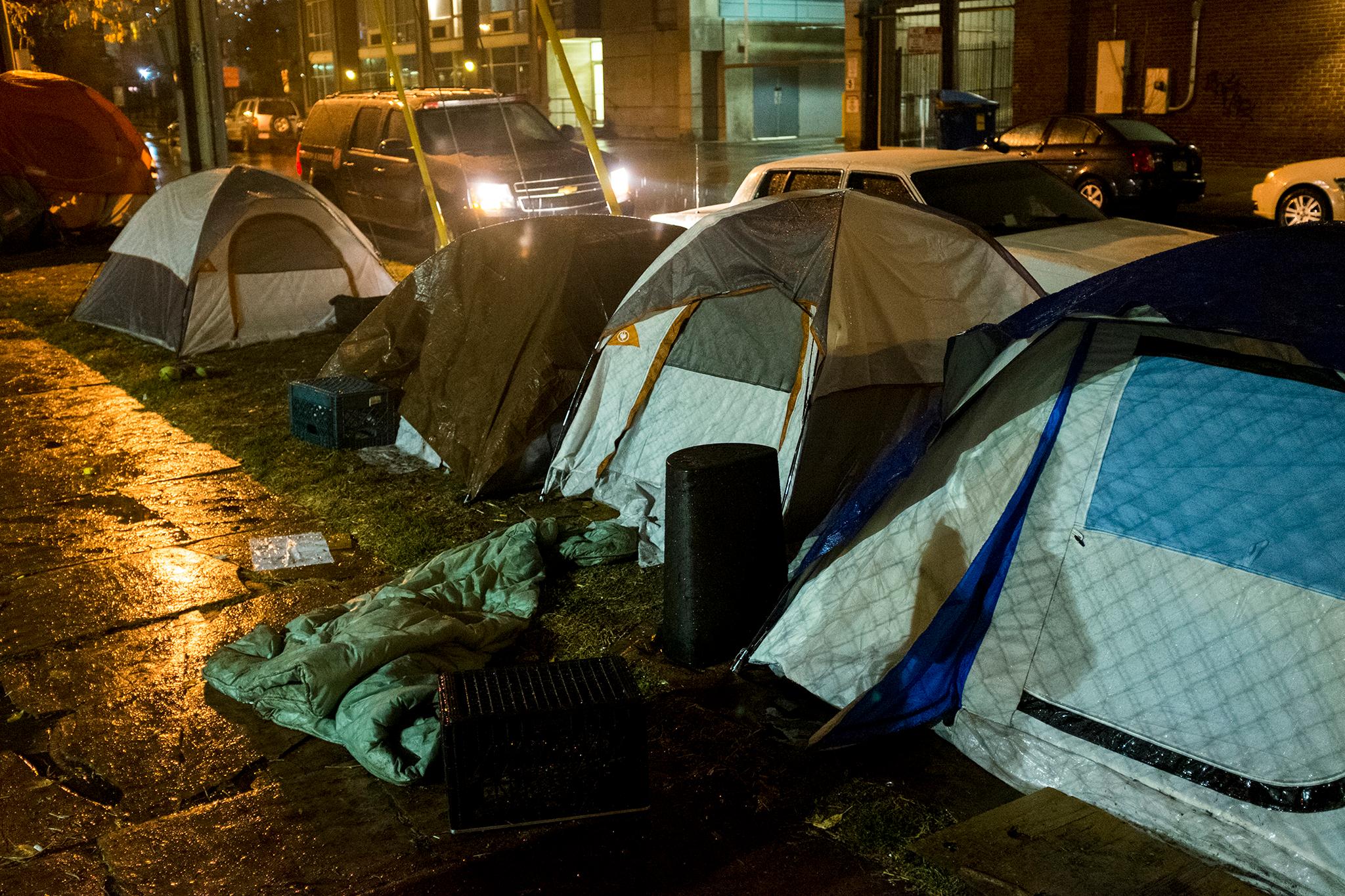Investors in Denver's social impact bond program will receive another payment from the city after independent evaluators again saw promise in the effort to house people who have experienced chronic homelessness and repeated visits to emergency rooms and encounters with police.
In a statement Wednesday, the city said investors that include the Denver Foundation and the Ben and Lucy Ana Walton Fund of the Walton Family Foundation will get a second payment of $837,600. The city had made an initial payment of $188,000 in October, 2017.
Both payments followed reports by the Urban Institute, which is working with the Evaluation Center at the University of Colorado Denver and the Burnes Center on Poverty and Homelessness at the University of Denver to track the program launched in 2016.
Under the program, the Colorado Coalition for the Homeless and the Mental Health Center of Denver use police arrest data to identify some of the most vulnerable people experiencing homelessness, then help them find housing and provide them health, food, transportation, legal and other support.
Investors who provided a total of $8.6 million will get their money back and possibly more if the program meets performance goals.
Additional funds have come from the Denver Housing Authority, the Colorado Division of Housing and Medicaid. The city hopes that the program will cost less than repeatedly arresting and jailing people experiencing homelessness or caring for them in emergency rooms.
"Before supportive housing, program participants' experiences of homelessness and housing instability were closely linked to their criminal justice involvement," the researchers said in their latest evaluation, "This program was designed to increase participants' housing stability and reduce their jail stays."
Between Jan. 1, 2016 and June 30, 2018, 285 participants signed leases for subsidized housing. Of those, 44 left the program -- some died, some were jailed for more than 90 days, some violated their leases. Researchers found that while participants continued to spend time in jail, they were spending on average significantly fewer days there than studies of the targeted population would have suggested.
Beyond the numbers, researchers found reason for hope in the progress of individuals. One example was a man who had been homeless for many years before being placed in an apartment.
"Many times, I find him sweeping his little front porch ... finding him sweeping that front porch just always gets me because it is just the fact of here is this person who he never had somewhere to clean before. He's never had something to sweep," a case worker told researchers. "Since moving him in, he has gotten himself an income. He has reconnected with a sister he hadn't been in touch with for years. He is about to travel for a family reunion coming up out of state. He is going to travel there with his sister, which is huge that he is reconnecting with his family again after all these years on the streets."
Mary Cunningham, co-director of the Urban Institute's Metropolitan Housing and Communities Policy Center, said in a statement: "Based on our evaluation, Denver's program continues to see promising results for housing stability and indicate strong interim outcomes for the program."
Later evaluations will compare outcomes for those in the program to people experiencing homelessness who get less support.
Correction: Previous version gave an incorrect name for the Mental Health Center of Denver.












